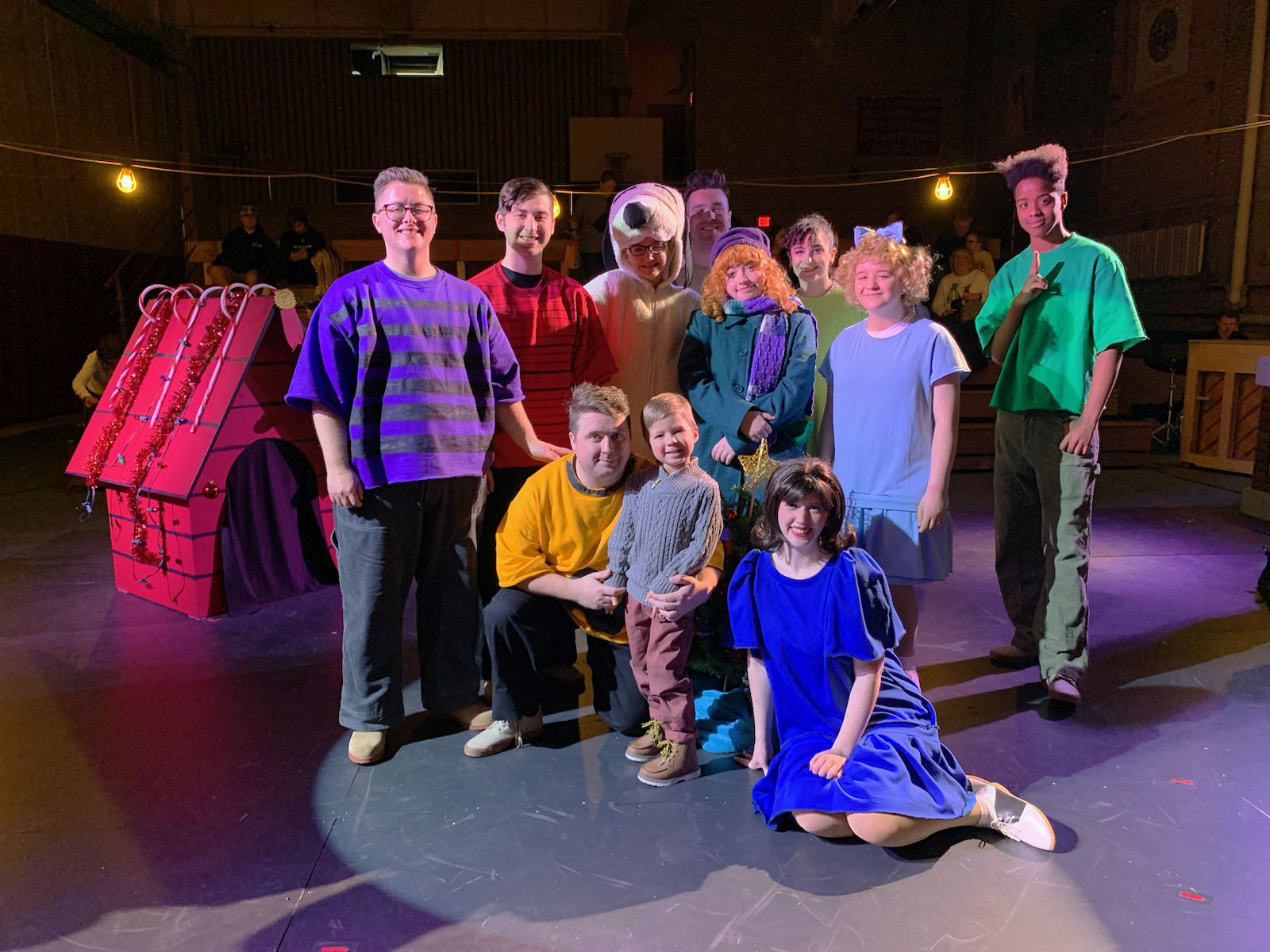Featured News - Current News - Archived News - News Categories
Researchers also note similarities of symptoms between kids who have PANS and people who have long COVID
By the University at Buffalo
For parents whose child has a rare condition that causes dramatic onset of symptoms like obsessions and compulsions, extreme irritability, or sensory issues, life can be a nightmare. The symptoms, typically triggered by an infection, can come on quickly, sometimes overnight, and last for weeks, months or even longer.
The disease is called pediatric acute-onset neuropsychiatric syndrome, or PANS, and it was identified only within the past 10 years or so. There’s still much to learn about what causes PANS and how clinicians can properly diagnose and treat it, but parents and caregivers know the immense burden and challenge it presents all too well.
An occupational therapy (OT) researcher from the University at Buffalo and a team of OT master’s students published new research in November that offers insight into the burden and stress PANS places on parents and caregivers.
“PANS is a rare disorder that, up until about 10 years ago, no one knew much about,” said Janice Tona, Ph.D., clinical associate professor in the department of rehabilitation science in UB’s School of Public Health and Health Professions. Tona is first author on the paper, which was published as part of a special section on PANS in the November issue of the Journal of Child and Adolescent Psychopharmacology.
Tona’s interest in PANS stemmed from someone she knew who had it. In 2010, Tona and researchers from the University of Florida and Stanford recruited nearly 700 participants for what was the largest collection of data on kids with the disorder.
In addition to the paper published with her master’s students, Tona is a co-author on two other papers in a special section devoted to PANS in the November issue. One reports a strong association between quicker access to care and more symptom-free days; the other suggests that high symptom persistence in PANS is associated with more pervasive medical and neuropsychiatric symptoms.
An accompanying editorial in the journal notes the similarities of symptoms between kids who have PANS and people who have long COVID, which has been characterized by brain fog and memory problems.
“The parallels seem striking. PANS was conceptualized as a postinfectious disorder that impacted multiple organ systems and resulted in a range of symptoms including neuropsychiatric syndromes, just like long COVID,” the editorial states.
For their paper, Tona’s OT master’s students recruited participants from PANS support group websites and social media. In all, 216 people – 179 representing 25 states in the U.S. and 37 international respondents – took the survey the group developed. The 216 participants were parents to 427 children, 246 of whom were diagnosed with PANS.
The study establishes “a clear and compelling” relationship between severity of PANS symptoms and caregiver stress. The study also examined relationship cohesion between parent and child – a measure of how disengaged or enmeshed they are – and found that caregivers reported feeling more enmeshed with their child than they wanted to be.
Getting an accurate diagnosis often takes time. Children with PANS are often instead diagnosed with either obsessive-compulsive disorder or an eating disorder. But it’s the sudden onset of symptoms and usual link to infection that separates PANS. Children with PANS can suffer from symptoms of depression and have extreme bouts of irritability. They often have difficulty with schoolwork, and their handwriting skills deteriorate.
“PANS family quality of life is often very poor,” Tona and her students wrote, adding that parents often report “feeling traumatized by the experience.” An open-ended question on the survey yielded painful recollections of the toll the disease has taken on parents, including their own mental health and relationships with significant others.
Many times, Tona said, parents are stigmatized.
“People often think the child has mental health problems and the parents just don’t want to admit it,” she said. “But when families get the right diagnosis and medication and essentially get their child back, they’re relieved and say that, if they hadn’t fought so hard for the right diagnosis and treatment, they’d still be struggling.”
PANS initially was labeled as pediatric autoimmune neuropsychiatric disorder associated with streptococcal infections (PANDAS) in the mid-1990s because, at the time, the symptoms were believed to be triggered specifically by a strep infection. However, researchers began to understand that strep isn’t the sole culprit.
“Especially with repeated infections, there’s a change in the blood-brain barrier and immune cells that aren’t supposed to get into the brain get in there,” Tona explained. “There’s this post-infection encephalitis, something happening in the brain after infection.”
Depending on the child, treatment of PANS may include any or all parts of a three-pronged approach: antibiotics and other antimicrobial medications; immune modulating medication, such as steroids or immunoglobulin infusions; and cognitive behavioral therapy to help the child learn to cope with symptoms.
Tona said she hopes this new research on PANS reaches health care providers.
“Our hope is that practitioners will be a little more open-minded and supportive of parents,” she said. “I would really like to see support groups for families, and interventions. It’s a very traumatic time for these families, and we don’t have any place for them to go to for support.”
The research already has captured the attention of advocates in some states who are hoping to leverage the research to educate lawmakers and push for mandated insurance coverage for PANS, Tona said.





























